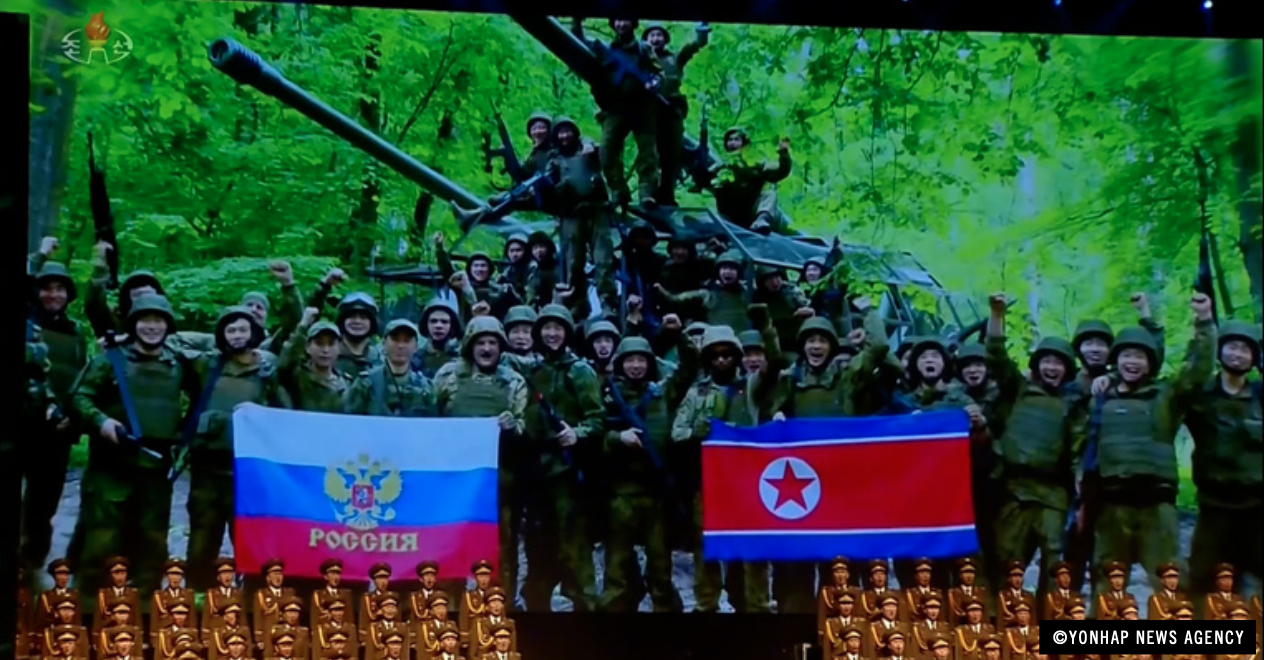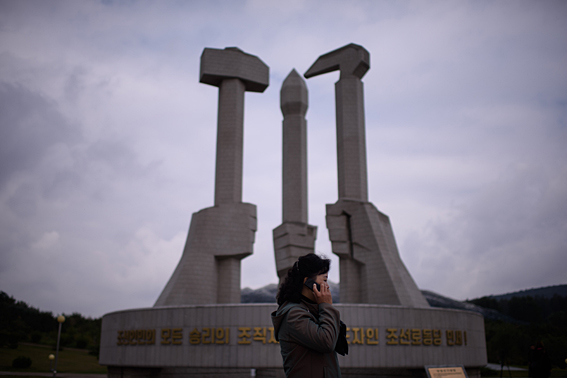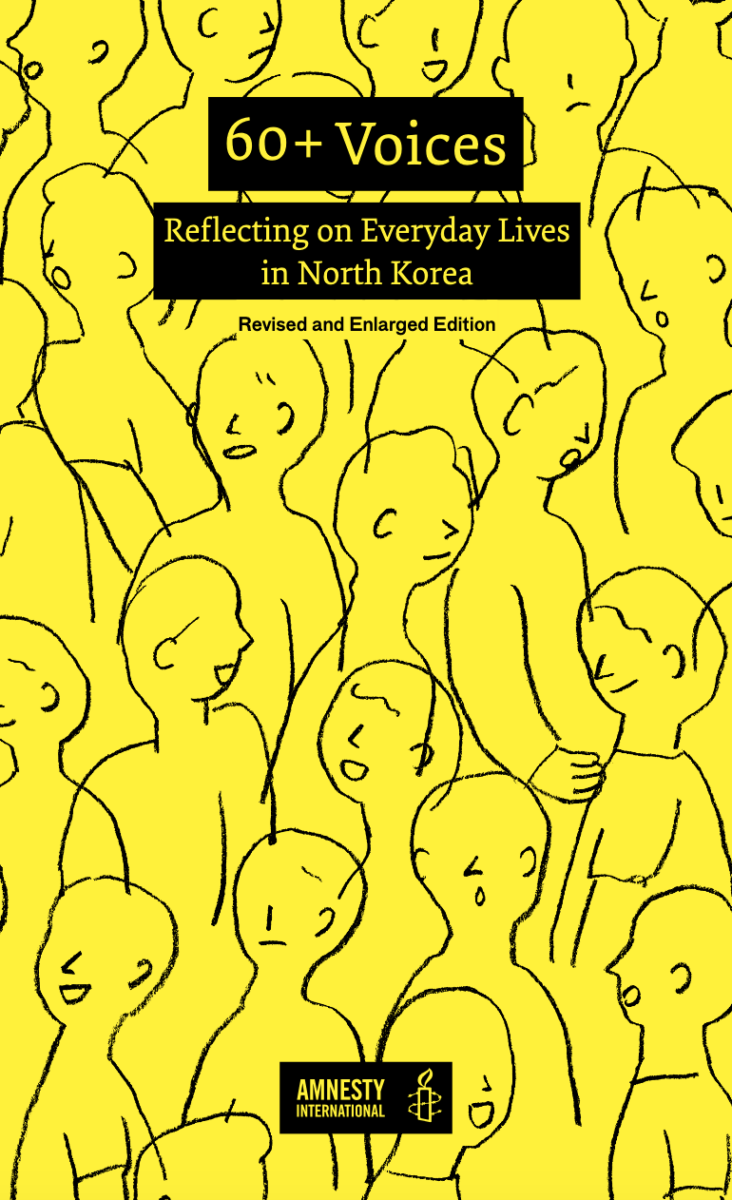last update: 01/2026
Oral Statement – Interactive Dialogue with the Special Rapporteur on the Democratic People’s Republic of Korea – HRC58
Amnesty International welcomes the report of the Special Rapporteur on the situation of human rights in the Democratic People’s Republic of Korea (DPRK). It urges the UN Human Rights Council to ensure sustained monitoring and accountability, with a particular emphasis on the crucial role of freedom of expression, and calls for adequate resourcing of the UN Human Rights Office in Seoul for its work on the DPRK.
North Korean Soldiers in Russia: Amnesty International Korea’s
Concerns (21 Feb 2025)
 AI Korea has published a blog post highlighting concerns over the treatment of North Korean soldiers who were reportedly deployed to Russia to take part in military operations during the ongoing war in Ukraine, drawing attention to the serious human rights implications of their forced involvement in the conflict.
AI Korea has published a blog post highlighting concerns over the treatment of North Korean soldiers who were reportedly deployed to Russia to take part in military operations during the ongoing war in Ukraine, drawing attention to the serious human rights implications of their forced involvement in the conflict.
AI Korea calls for the rights of captured North Korean soldiers to be fully respected in accordance with international law, and urges all parties to ensure their humane treatment and protection.
북한인권: 독일에서의 한국지부 북한인권 활동
지금으로부터 약 10년 전인 2014년 2월 17일 북한인권 활동 역사에서 한 획을 긋는 중대한 발표가 있었습니다. 바로 유엔 ‘북한인권 조사위원회(COI)’에서 약 1년간의 조사 활동 후 그 결과를 담은 ‘COI 보고서(1. 요약본, 2. 상세본)’를 공개한 것인데요. COI 보고서는 방대한 근거 자료를 바탕으로 북한 정권이 광범위하고 조직적이며 심각한 인권 침해를 자행해 왔다고 결론을 내렸습니다. 그리고 이를 바탕으로 가해자를 국제형사재판소(ICC)에 회부할 것을 권고하는 등 국제적 차원에서 책임 규명의 필요성을 강조한 바 있습니다.
올해는 COI 보고서 발표 10주년입니다. 이를 기념하여 국내외에서는 북한인권에 대한 관심을 촉구하기 위한 다양한 행사가 개최되고 있습니다. 또한, 오는 11월에는 유엔에서 북한에 대한 제4차 ‘국가별 정례인권검토(UPR)‘도 예정되어 있습니다. 이에 따라 한동안 다소 주춤했던 북한인권에 대한 관심과 활동도 재점화되는 양상입니다. 국제앰네스티 한국지부이하 한국지부는 최근의 이와 같은 흐름을 적극 활용하여 국내뿐만 아니라 해외에서도 북한인권 애드보커시 활동을 전개하기로 결정했습니다.
한국지부는 작년(2023년) 11월 스페인에서의 북한인권 활동을 시작으로 올해(2024년)는 독일(5월), 일본(6월), 대만(10월 예정)을 방문해 현지 대중 및 이해관계자를 대상으로 한국지부가 수집한 최신 북한인권 정보를 공유하고 북한인권에 대한 관심과 행동을 촉구하는 다양한 활동을 펼치고 있습니다.
https://amnesty.or.kr/125508/?ckattempt=2
Unser aktueller Report
Der Report als *pdf umfasst über 300 Seiten und ist hier downloadbar.
From October 2019 to June 2022, over the span of nearly 2 years and 9 months, Amnesty International Korea (AIK) met with 72 North Koreans who left North Korea and settled in the South. AIK conducted in-depth interviews with them and was able to collect the latest information on the human rights situation in North Korea.
AI Korea published 50+ Voices: Reflecting on Everyday Lives in North Korea on 4 October. This book contains testimonies of 54 North Koreans with whom AIK met. These were people who had left North Korea within 3 years as of the date of the interview. They had experienced and witnessed the recent human rights situation in North Korea. They told their stories about the reality of the human rights situation and the lives of inhabitants based on their experiences. In the book, the testimonies they offered were edited into monologues.
50+ Voices divides the lives of North Korean inhabitants into six themes: 1) education, 2) detention facilities, 3) social change, 4) the workplace and 6) the economy. Each theme covers a number of related human rights problems in North Korea.
WIE KANN AMNESTY IN NORDKOREA HELFEN? WIE KÖNNEN SIE HELFEN?
1. How will my money make a difference? And how will Amnesty make a difference in North Korea?
Your donation will make a massive difference! You can help us to conduct more research on human rights abuses in North Korea. If we are not able to investigate human rights atrocity’s and gather evidence then we cannot push for change. We produce detailed reports containing evidence, including testimonials from North Koreans who are now away from the country and are able to speak up about their struggles to re-connect with their beloved ones back home. We are respected for the depth and accuracy of our research. Regardless of who is committing the abuses or where they are taking place, we will expose them! We need money also for human rights education programs and public awareness-raising activities so people know what the struggles people are facing around the globe.
2. Why is this important when there are millions of people dying or being displaced in conflict zones like Syria, Iraq and Afghanistan?
We care about, and will continue to work on the entire range of human rights across the globe, from the right to life to the right to health and education. Amnesty International is by no means ignoring all the people suffering in these countries. But while we care about people who are suffering from physical harm, we also cannot stay silent about the right to freedom of expression, which includes the right to seek, receive and impart information regardless of national borders. North Koreans are currently deprived of this freedom, and it is one of our many initiatives to tell the world about this human right violation. This also directly impacts on our ability to continue to fight against other abuses of human rights. Without the ability to send and receive information across borders, it remains extremely difficult for people in North Korea to tell the outside world about the systemic, widespread and gross human rights violations such as executions, torture, forced labour and other ill-treatment.
3. Why is Amnesty focusing on access to international mobile and internet communications when there are hundreds of thousands of people suffering from forced disappearance, torture, starvation, forced labour, executions etc. inside prison camps and other detention facilities in NK? Why not campaign to end the worst of the human rights abuses?
We continue to work on a variety of human rights violations in North Korea through research, campaigning and advocacy including at the United Nations. We also can’t ignore that surveillance and censorship on communications is a rising trend in human rights violations around the world. Amnesty International was carrying out the campaign „Connection Denied“ to urge the North Korean government to end the restrictions on mobile phone services and accessing outside information because the right to access information will enable us to do so much more to end these other grave human rights abuses. Independent monitors of human rights are currently not allowed to travel to North Korea to understand the situation there. Without the ability to send and receive information across border, it remains extremely difficult for people in North Korea to tell the outside world about systemic, widespread and gross human rights violations such as executions, torture, forced labour and other ill-treatment.
4. What about people who are starving to death and can’t afford mobile phones? What is Amnesty doing to help them?
Amnesty International has continued to urge the North Korean government to allow humanitarian workers access to people who are suffering the most. The food security situation in North Korea has actually improved in recent years, but people still need reliable access to food. It is therefore important to allow food and other items to be trucked in from neighboring countries such as China. According to North Koreans whom we interviewed, the mobile phone is an important tool in maintaining this market trade, which has to a large extent has replaced the unreliable government distribution system in making food and necessities available to people. Currently, mobile phones under the domestic system have become hugely popular in North Korea, with 3 million subscribers, and network coverage expanding to cover 94% of the country’s population of about 25 million.
5. Why would Kim Jong-un care? How is this really going to bring about real change?
The violations to the rights to freedom of opinion, expression and the right to access information received the attention of the UN Human Rights Council, which in early 2015 urged the North Korean government to ensure the enjoyment of these rights, “including by permitting the establishment of independent newspapers and other media”. Moreover, the North Korean government cannot ignore the worldwide trend of unified international communications. Kim Jong-un blocks North Koreans from calling people outside the country, because he wants to maintain strict control over the information that they receive. But on the other hand, he also needs to deliver economic development, and to attract foreign investment. The fact that domestic mobile phone services have been started in North Korea in a signal that Kim Jong-un may recognize the need to develop and use technological advancements.
6. What is the evidence that Amnesty can make any change in North Korea? i.e. what have we done in the past? How is Amnesty uniquely positioned to have influence?
Our past research, campaign, and advocacy work on North Korea have informed decisions at the international level, particularly in the UN, regarding North Korean human rights. With our more than 7 million activists worldwide, and their active campaigning on our well respected research, we are uniquely positioned to achieve impact.
7. What about the prison camps? Are they still there and still as bad? What is Amnesty doing to close the camps?
To date, the political prison camps are still in operation, and the North Korean government still denies their existence. We constantly need efforts to show the North Korean government that the world is watching. Our previous findings through satellite images was a powerful way to do so. But we hope that someday North Koreans themselves will be empowered to collect evidence of these grave suffering, and be able to send it to the world directly using the information technology which they have a right to access.

Eine Frau telefoniert in Nordkoreas Hauptstadt Pjöngjang vor dem „Monument zur Gründung der Partei der Arbeit Koreas“: © ED JONES/AFP/Getty Images
__________________
Spendenkonto Bank für Sozialwirtschaft IBAN DE 233 702050 0000 8090100 BIC BFSWDE33XXX Verwendungszweck Korea Gruppe 2225






